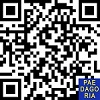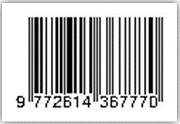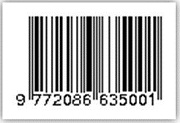TRANSFORMING ISLAMIC EDUCATION MANAGEMENT IN EMPOWERING SUSTAINABLE EDUCATION IN SOCIETY 5.0
Abstract
Abstrak: Di era Society 5.0, dimana teknologi dan masyarakat menyatu, manajemen pendidikan Islam memainkan peran penting dalam mendorong pendidikan berkelanjutan. Untuk menyelaraskan ajarannya dengan tujuan pendidikan berkelanjutan di Society 5.0, institusi pendidikan Islam harus mengalami perubahan transformasional. Penelitian ini bertujuan untuk mengetahui strategi transformasi manajemen pendidikan untuk mendukung pendidikan berkelanjutan di era Society 5.0. Penelitian ini menggunakan metodologi penelitian kepustakaan. Hasil penelitiannya adalah manajemen pendidikan Islam harus bertransformasi dalam Integrasi Teknologi, Kurikulum dengan Pendekatan Holistik, Mengembangkan Keterampilan Pemecahan Masalah dan Berpikir Kritis, serta Keterlibatan Masyarakat dan Pembelajaran berbasis Pengabdian.
Abstract: In the age of Society 5.0, when technology and society intersect, the management of Islamic education plays a vital role in advancing sustainable education. In order to harmonize their teachings with the objectives of sustainable education in Society 5.0, Islamic educational institutions must undertake transformative reforms. The research seeks to identify the strategy for transforming education management in order to facilitate sustainable education in the era of Society 5.0. The study employed a library-based research methodology. The findings of the study indicate that Islamic education management should undergo transformation in several areas, namely Technology Integration, Curriculum with a Holistic Approach, Developing Problem-Solving and Critical Thinking Skills, and Community Engagement and Service-Learning.
Keywords
Full Text:
PDFReferences
Adıgüzel, A., & Orhan, A. (2017). The relationship between English Learning Students’ Levels of Self regulation and Metacognitive Skills and Their English Academic Achievements. 8(9). www.iiste.org
Afwan Yazid, A. (2021). Existence of Islamic education in the era of society revolution 5.0. AMCA Journal of Religion and Society, 1(1), 13–15. https://doi.org/10.51773/ajrs.v1i1.34
Ariani, D., & Syahrani. (2022). Manajemen Pesantren dalam Persiapan Pembelajaran 5.0. Cross-Border, 5(1), 611–621.
Bahri, S. (2022). Konsep Pembelajaran PAI di Era Society 5.0. Edupedia, 6(2), 133–145.
Bahtiyar, F. H., Mufliha, Ainiy, N., Ngarifah, I., Mufidah, N., & Taufiqurrochman, R. (2022). Manhaj Taʻlīm al-Lughah al-ʻArabīyah ʻalá Asās takayyuf santri fī ʻaṣr al-Mujtamaʻ 5.0 :al-Mafhūm wa-al-āṡār. Al-Tadris: Jurnal Pendidikan Bahasa Arab, 10(2), 304–330.
Dahari, A. A., Suhid, A., & Fakhrudin, F. (2019). Implementation Critical Thinking in Teaching Islamic Education. International Journal of Academic Research in Progressive Education and Development, 8(4), 805–823. https://doi.org/10.6007/ijarped/v8-i4/6756
Hadiapurwa, A., Riani, P., Yulianti, M. F., & Yuningsih, E. K. (2021). Implementasi Merdeka Belajar untuk Membekali Kompetensi Generasi Muda dalam Menghadapi Era Society 5.0. Al-Mudarris (Jurnal Ilmiah Pendidikan Islam), 4(1), 115–129. https://doi.org/10.23971/mdr.v4i1.3140
Haryani, F. F., Sukarmin, S., Wahyuningsih, D., & Supurwoko, S. (2021). Implementasi Komponen-Komponen Manajemen Berbasis Sekolah (Mbs) Di Sekolah Menengah Pertama. JAMP : Jurnal Administrasi Dan Manajemen Pendidikan, 4(3), 204–211. https://doi.org/10.17977/um027v4i32021p204
Hasan, M. T. A., & Ramli, A. (2023). Implementasi PAI dalam Membentuk Karakter Peserta Didik di Era Society. Borneo Journal of Islamic Education, 3(1), 31–41.
Hermawan, I., Supiana, S., & Zakiah, Q. Y. (2020). Kebijakan Pengembangan Guru di Era Society 5.0. JIEMAN: Journal of Islamic Educational Management, 2(2), 117–136. https://doi.org/10.35719/jieman.v2i2.33
Hermawansyah, H. (2022). Manajemen Pendidikan Berbasis Informasi Di Era Society 5.0. Fitrah: Jurnal Studi Pendidikan, 13(1), 46–57. https://doi.org/10.47625/fitrah.v13i1.369
Hidayat, A., Fatimah, S., & Rosidin, D. N. (2022). Challenges and Prospects of Islamic Education Institutions and Sustainability in The Digital Era. Nazhruna: Jurnal Pendidikan Islam, 5(2), 351–366.
Husni, H., & Atoillah, A. N. (2022). Islamic Education, Insan Kamil, and the Challenges of the Era of Society 5.0: A Literature Review. Jurnal Penelitian Pendidikan Islam, 10(1), 67. https://doi.org/10.36667/jppi.v10i1.1005
Ilyasin, M. (2016). Epistemologi Pendidikan Islam Monokotomik: Menakar Manajemen Pendidikan Paripurna Berbasis Rasionalistik- Wahyuistik. At-Turas, 3(1), 71–87.
Irma Solikhah, P. (2022). the Opportunity and Challenges of Implementing a Prototype Curriculum. Jurnal Pendidikan Islam, 5(2), 407–421.
Khaira, I. K., Susilawati, E., & Renaldi, R. (2021). Implementasi Rancangan Pembelajaran Berbasis Tpack Sebagai Integrasi Pembelajaran Di Era Society 5.0 Untuk Meningkatkan Hasil Belajar Mata Kuliah Ekonomi Kesehatan. Jurnal Teknologi Pendidikan (JTP), 14(2), 111. https://doi.org/10.24114/jtp.v14i2.28336
Lestariningrum, A., Rofiqoh, E., & Natanie, S. (2022). The 1 st International Seminar August 2022 The Changing Role of Knowledge and Living Sustainability in ASEAN Community The Changing Role of Knowledge and Living Sustainability in ASEAN Community The Implementation of lndependent Curriculum Through Project. August, 1–13.
Maghfuri, A. (2020). Analisis Politik dan Kebijakan Pendidikan Islam pada Awal Orde Reformasi ( 1998-2004 ). Manajemen Pendidikan Islam, 8(1), 14–26.
Mebert, L., Barnes, R., Dalley, J., Gawarecki, L., Ghazi-Nezami, F., Shafer, G., Slater, J., & Yezbick, E. (2020). Fostering student engagement through a real-world, collaborative project across disciplines and institutions. Higher Education Pedagogies, 5(1), 30–51. https://doi.org/10.1080/23752696.2020.1750306
Mubarak, F. (2004). Faktor dan indikator mutu pendidikan islam. Jurnal: Management of Educatio, 1(1), 10–18.
Paramansyah, A., & Rostandi, U. D. (2021). Implementation of Education Management in the Era of Society 5.0. Laa Roiba, 1(23), 141–152.
Pihar, A. (2022). Modernization of Islamic Religious Education in the Era of Society. Book Chapter of Proceedings Journey-Liaison Journey-Liaison Academia and Society, 1(1), pp.1-12.
Ponto, J. (2015). Understanding and Evaluating Survey Research. Journal of the Advanced Practitioner in Oncology, 6(2), 168–171. https://www.ncbi.nlm.nih.gov/pmc/articles/PMC4601897/pdf/jadp-06-168.pdf
Ramadina, E., Agama, I., Negeri, I., & Tulungagung, I. (2021). Aktualisasi Supervisi Artistik dalam Manajemen Pendidikan Islam. Attractive : Innovative Education Journal, 3(1), 91–101.
Redmond, P., Abawi, L. A., Brown, A., Henderson, R., & Heffernan, A. (2018). An online engagement framework for higher education. Online Learning Journal, 22(1), 183–204. https://doi.org/10.24059/olj.v22i1.1175
Resufle, A. H., & Rofiki, M. (2022). Management of Islamic Education in the Challenges of Society 5.0. Edukatif : Jurnal Ilmu Pendidikan, 4(3), 4578–4588. https://doi.org/10.31004/edukatif.v4i3.2820
Ridho, A., Wardhana, K. E., Yuliana, A. S., Qolby, I. N., & Zalwana, Z. (2022). Implementasi Pendidikan Multikutural Berbasis Teknologi Dalam Menghadapi Era Society 5.0. EDUCASIA: Jurnal Pendidikan, Pengajaran, Dan Pembelajaran, 7(3), 195–213. https://doi.org/10.21462/educasia.v7i3.131
Setyanto, E., Rasyidah, N., & Sulhan, M. (2017). Aplikasi TIK dalam Manajemen Pendidikan Dasar Dan Menengah. HIKMAH: Jurnal Pendidikan Islam, 6(2), 298–317.
Surahman, S., Mudofir, M., & Baidi, B. (2021). Response Of Islamic Educational Institutions TowardsThe Era of Society 5.0. At-Tarbiyat: Jurnal …, 4(3), 370–380. http://jurnal.staiannawawi.com/index.php/At-Tarbiyat/article/view/315%0Ahttps://jurnal.staiannawawi.com/index.php/At-Tarbiyat/article/download/315/227
Togia, A., & Malliari, A. (2017). Research Methods in Library and Information Science. In Qualitative versus Quantitative Research (Issue July, p. 52). https://doi.org/10.5772/intechopen.68749
Trinova, Z., Amir, D., & Andayani, P. (2020). The Implementation Of Critical Thinking In 21ST Century Learning For Islamic Education. FITRAH:Jurnal Kajian Ilmu-Ilmu Keislaman, 6(1), 81–94.
Umam, M. K. (2020). Dinamisasi Manajemen Mutu Persfektif Pendidikan Islam. Jurnal Al-Hikmah, 8(2), 61–74.
Uran, S. I. G., Kurniawan, A., Ningsih, W., Fathurrohmah, T., Amir, A., & Febriant, A. N. (2022). Manajemen pendidikan (M. P. Ari Yanto (ed.); 1st ed.). PT GLOBAL EKSEKUTIF TEKNOLOGI.
Utami, R. (2019). Integrasi Kurikulum di Indonesia dalam Menghadapi Era Society 5.0. Jurnal FTIK, 1(21), 213–218.
Uyun, M. (2023). Islamic Education System in Welcoming the Era of Society 5.0. Istawa : Jurnal Pendidikan Islam, 7(2), 221–233. https://doi.org/10.24269/ijpi.v7i2.6071
DOI: https://doi.org/10.31764/paedagoria.v15i3.22963
Refbacks
- There are currently no refbacks.
Copyright (c) 2024 Yundri Akhyar, wirda Ningsih

This work is licensed under a Creative Commons Attribution-ShareAlike 4.0 International License.
Paedagoria : Jurnal Kajian, Penelitian dan Pengembangan Kependidikan
Fakultas Keguruan & Ilmu Pendidikan | Universitas Muhammadiyah Mataram.
_______________________________________________
 | Paedagoria : Jurnal Kajian, Penelitian dan Pengembangan Kependidikan |
______________________________________________
CURRENT INDEXING:
EDITORIAL OFFICE:


















